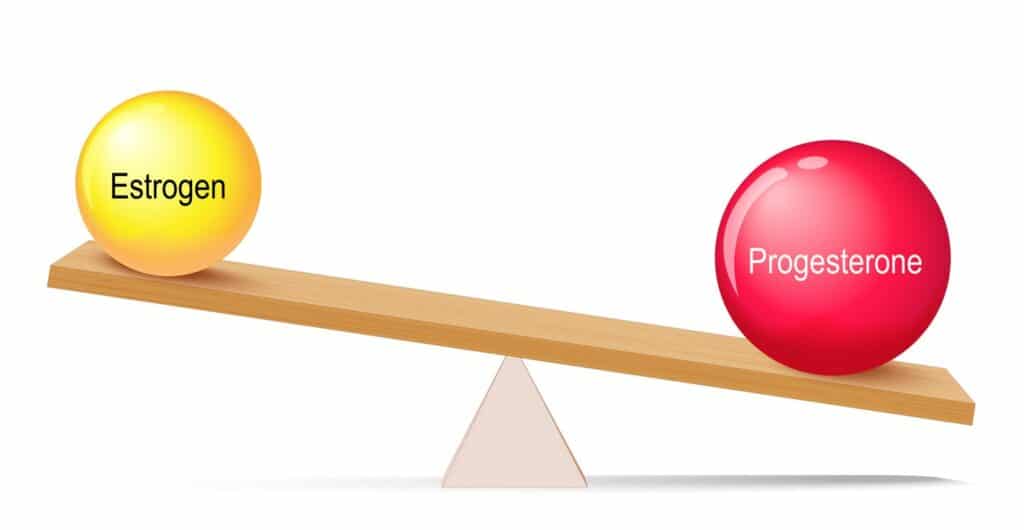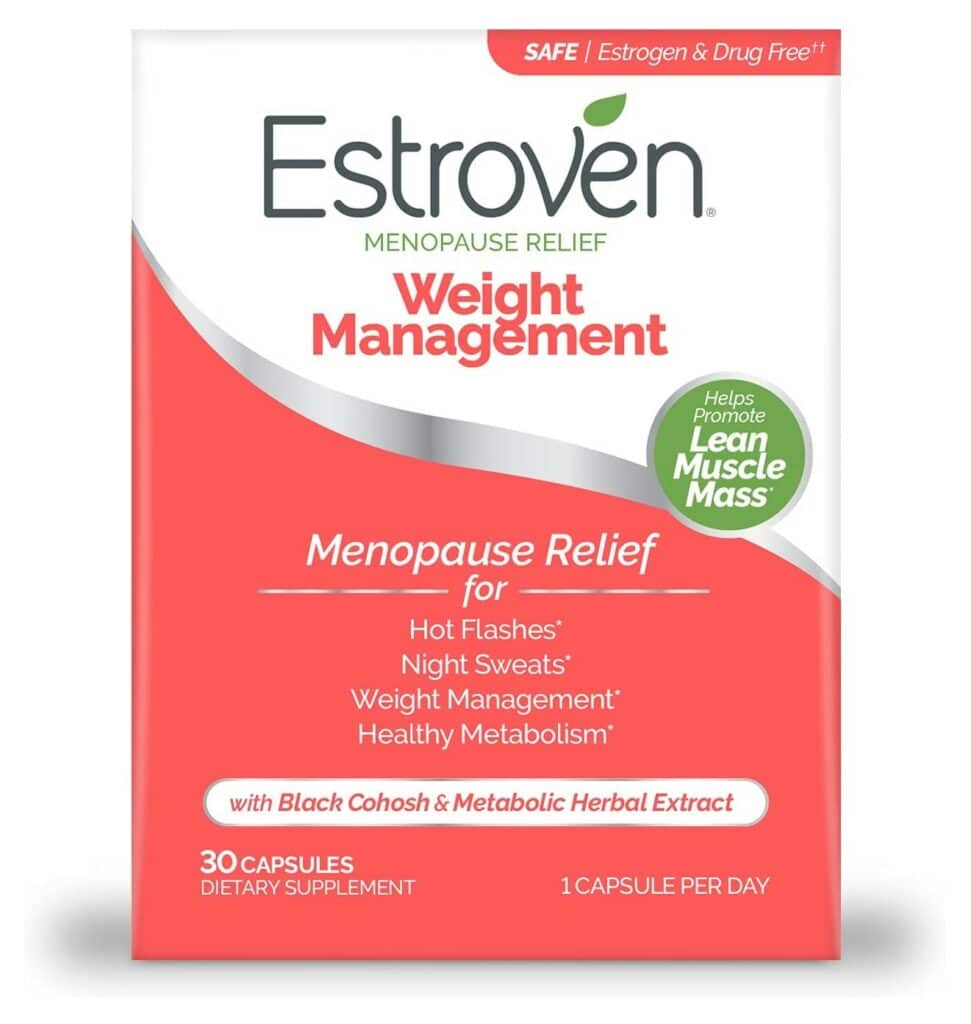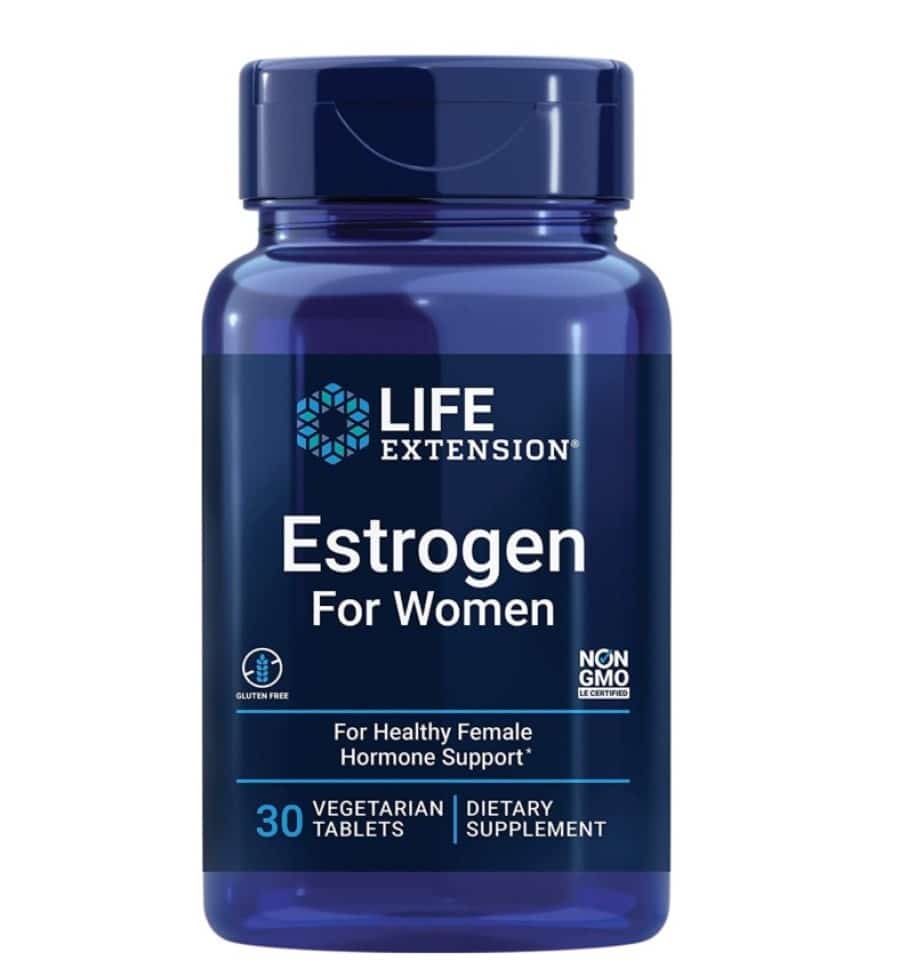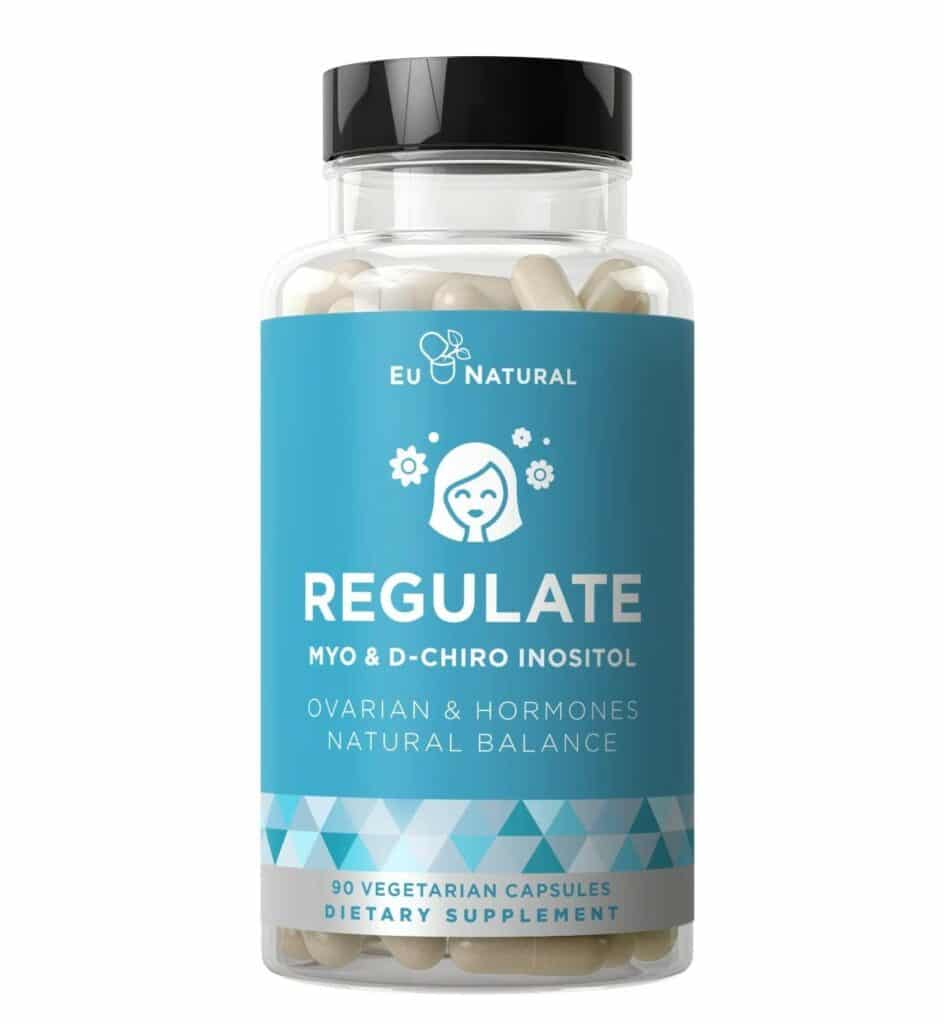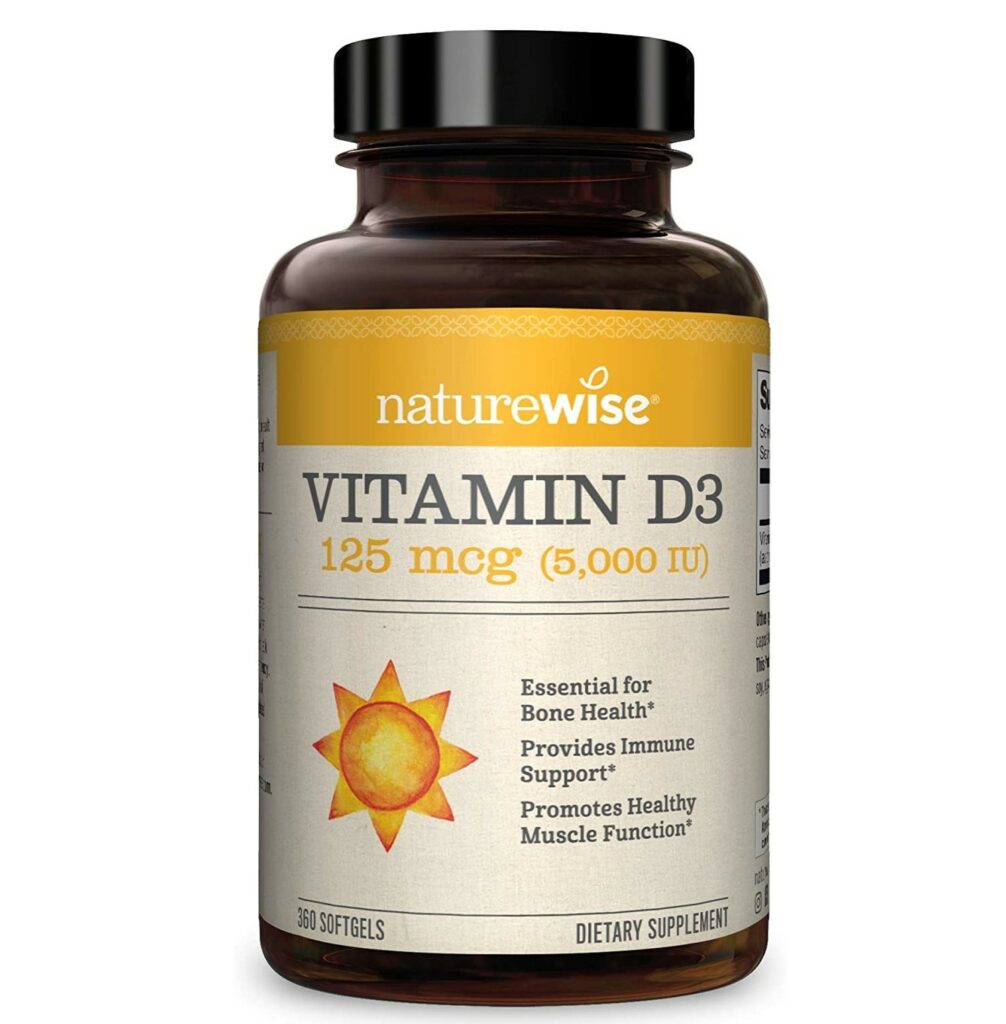Estrogen and progesterone are two major hormones essential for women’s health, but your levels can fluctuate over time.
Low levels of estrogen and progesterone can negatively affect your mood, reproductive health, bone health, and more.
However, many hormone medications are prescription-only or run the risk of causing long-term side effects, so can you use vitamins to increase estrogen instead?
Estrogen is the main female sex hormone responsible for women’s physical development and reproductive capabilities, while progesterone supports healthy menstrual cycles and pregnancy. Low levels of natural estrogen and progesterone can affect your mood, bone health, and much more, so regulating your hormonal levels is key to staying healthier for longer.
Although certain hormonal changes – such as plunging estrogen levels during menopause – are largely unavoidable, many people can tackle low estrogen symptoms with the right vitamins. In this article, we’ll discuss how to increase your estrogen and progesterone levels naturally and how to tell if you’re suffering from a hormonal imbalance.
Table of Contents
- Best Vitamins to Increase Estrogen and Progesterone Levels
- Can Vitamins Increase Estrogen?
- What Is the Fastest Way to Increase Estrogen and Progesterone?
- Which Vitamins Balance Estrogen and Progesterone?
- How Can I Balance My Estrogen and Progesterone Naturally?
- What Are the Signs of Low Estrogen?
- What Are the Signs of Low Progesterone?
- How Long Does It Take To Get Progesterone Levels Up?
- The Effects of High Progesterone
- Conclusion
Best Vitamins to Increase Estrogen and Progesterone Levels
Although changes to your diet and lifestyle can do a lot to raise your hormone levels into a healthy range, taking vitamins to increase estrogen will only get you so far. Natural interventions won’t work for everyone, and some people are extremely sensitive to the symptoms of low estrogen, which is where these supplements come in handy.
These supplements contain a range of herbal extracts, vitamins and minerals to help regulate your levels of estrogen and progesterone, as well as support your overall health:
1. Estroven Menopause Relief
It’s a known fact that excess body fat raises estrogen levels and contributes to hormonal imbalance, so a supplement designed to manage your weight and hormones should provide excellent relief from symptoms of low estrogen.
Furthermore, the active ingredients in these estrogen vitamins – black cohosh and soy isoflavones – are proven to help raise estrogen levels and manage menopausal symptoms like night sweats and mood swings.
2. Life Extension Estrogen for Women
Life Extension’s estrogen supplements are packed with natural sources of phytoestrogens (including hops, liquorice, dong quai and Norway spruce lignan extracts) to help increase your natural estrogen levels.
Despite its decidedly phallic name, dong quai is a traditional Chinese medicine commonly used to treat low estrogen symptoms, containing compounds that act as phytoestrogens, so these supplements are a great source of plant-based estrogen.
3. EU Natural Regulate (Myo-Inositol & D-Chiro Inositol)
These supplements are designed to regulate your ovarian cycle and hormonal balance with a blend of myo-inositol & d-chiro inositol that is vegetarian and gluten-free.
Inositols are a type of carbocyclic sugar known to mediate hormone response and improve the symptoms of polycystic ovary syndromes (PCOS), so they can help reduce the harmful effects of high progesterone.
4. NatureWise Vitamin D3
Although these supplements aren’t estrogen vitamins, vitamin D helps regulate your hormones and reduce your chances of developing osteoporosis which is commonly caused by low estrogen levels.
Most Americans don’t get enough vitamin D, and vitamin D3 is the most bioavailable form of vitamin D. We recommend these supplements for all women, especially if you’re concerned about low estrogen levels.
RELATED: Learn the difference between vitamin D1, D2 and D3 here.
Can Vitamins Increase Estrogen?
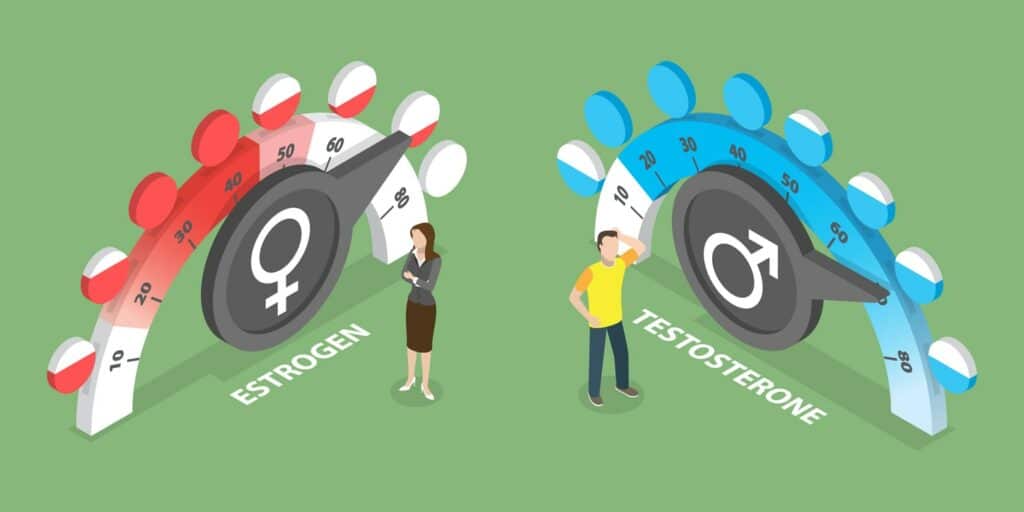
Unfortunately, there are no vitamins that directly increase your estrogen levels, and estrogen vitamins cannot resolve clinically low hormone levels balances on their own. Fortunately, certain foods and supplements can help treat low estrogen symptoms, thanks to their vitamin contents, such as:
Soybeans
Soy and soy-based products (including tofu, miso, and soy sauce) are high in phytoestrogens, which behave similarly to estrogen in the body.
Flax Seeds
Flax seeds are also high in phytoestrogens, and the primary phytoestrogens in flax seeds – known as lignans – help improve estrogen metabolism.
Sesame Seeds
Sesame seeds are another dietary source of phytoestrogens and may be effective at curing low estrogen symptoms, based on animal studies using sesame oil supplementation.
B Vitamins
B vitamins are essential for estrogen production in your body, and low levels may affect your hormone levels, so B vitamin supplements may help raise your natural estrogen levels.
Vitamin D
Vitamin D acts like a hormone in your body and is essential for various biological processes, including hormone synthesis, so it supports healthy estrogen and testosterone levels.
RELATED: Learn more about how vitamin D helps regulate testosterone here.
Boron
Boron is a trace mineral found naturally in leafy greens, grains, fruit and nuts, which helps regulate estrogen and testosterone metabolism, making it a good recommendation for vitamins to increase estrogen.
DHEA
DHEA (or dehydroepiandrosterone) is a natural hormone that can be converted into estrogen and testosterone in the body, so this ingredient is included in many estrogen vitamins.
What Is the Fastest Way to Increase Estrogen and Progesterone?
One of the fastest ways to alter your hormonal balance and increase progesterone levels is through Hormone Replacement Therapy (or HRT). This process involves administering high levels of hormones and is often used to treat hormonal imbalances caused by menopause or for gender reassignment therapy.
However, HRT should only be prescribed by medical professionals, as it can increase your risk of infertility, cancer, and heart disease. Furthermore, most women may not benefit from HRT, so we recommend changing diet and lifestyle factors (and looking into estrogen or progesterone vitamins) before asking your doctor if HRT is right for you.
Which Vitamins Balance Estrogen and Progesterone?
Hormonal imbalances can be disastrous for your health, so it’s important to try and keep your body in balance through healthy lifestyle choices and a diet high in vitamins and minerals. The side effects of high progesterone or high estrogen include anxiety, unexpected weight gain/loss and fatigue, but many of these are nonspecific symptoms, so you should seek a professional diagnosis before self-medicating.
Fortunately, there is some evidence that certain vitamins and minerals can help you regulate your estrogen and progesterone levels, including:
Vitamin D
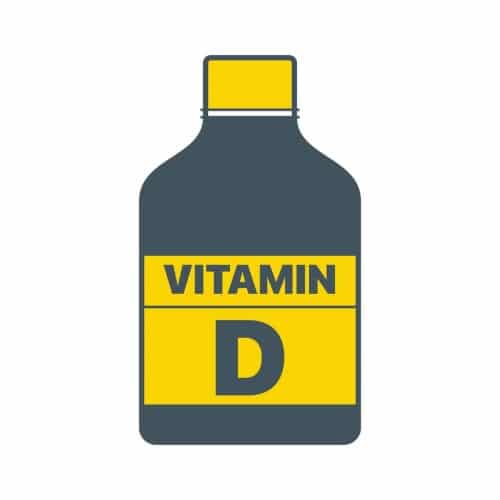
Vitamin D has a similar chemical structure to several hormones and helps to regulate levels of testosterone, parathyroid hormone, and anti-mullerian hormone, among others.
Vitamin E
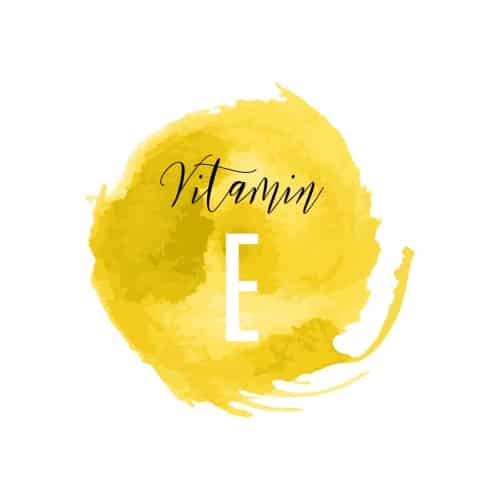
Lab studies show that vitamin E can help maintain the hormone balance of follicle-stimulating hormone, luteinizing hormone and testosterone under stress, so it may help when used as progesterone vitamins.
Coenzyme Q10
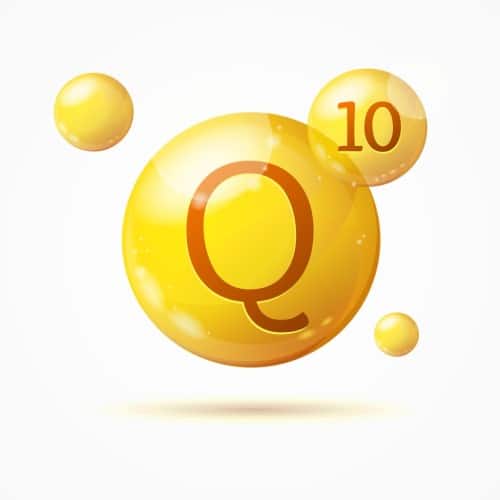
Coenzyme Q10 (also known as coquinone and CoQ10) supports the production of energy in your cells and has antioxidant properties, which means that it may help balance your estrogen and progesterone levels.
RELATED: Learn more about the benefits and potential uses of CoQ10 here.
How Can I Balance My Estrogen and Progesterone Naturally?
Typically, your body should produce all the hormones your body needs to stay healthy, but many factors (such as diet, lifestyle and pollution) can disrupt your delicate hormonal balance. Fortunately, many natural techniques can help you maintain hormonal balance, increase progesterone levels and more, including:
Eating enough protein:

Protein is essential for hormone balance, as it provides essential amino acids and allows your body to produce protein-derived hormones known as peptide hormones. Experts recommend eating at least 20-30g of protein per meal, which can come from meat, fish, pulses and cheeses.
Exercising regularly:
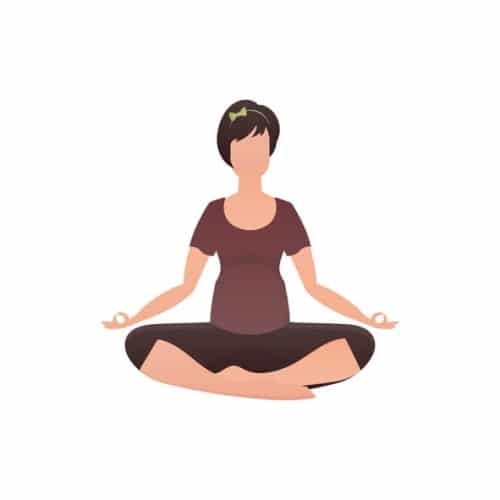
Regular exercise is strongly linked to hormonal health, as it helps improve blood flow to your muscles, increases hormone receptor sensitivity and reduces insulin levels. Even if you can’t perform vigorous exercise, even regular walking may help regulate your hormones – including natural estrogen levels – and contribute to strength and quality of life.
Maintaining a healthy weight:
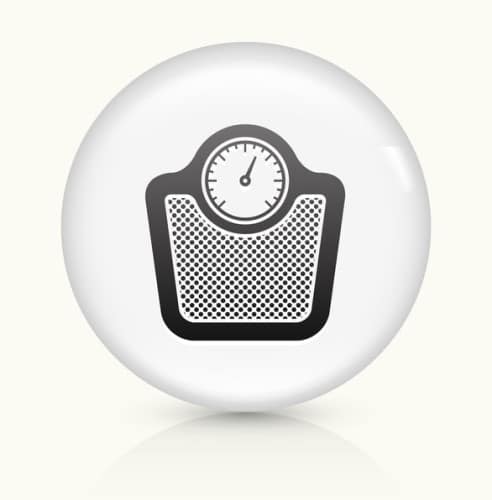
Excess body fat is strongly linked to increased insulin and estrogen levels, increasing your risk of heart disease and reproductive health issues. Losing excess weight can help reduce your risks of diabetes, while growing to a healthy weight can increase progesterone levels to normal ranges, so we recommend trying to maintain a healthy weight.
Lowering your sugar intake:
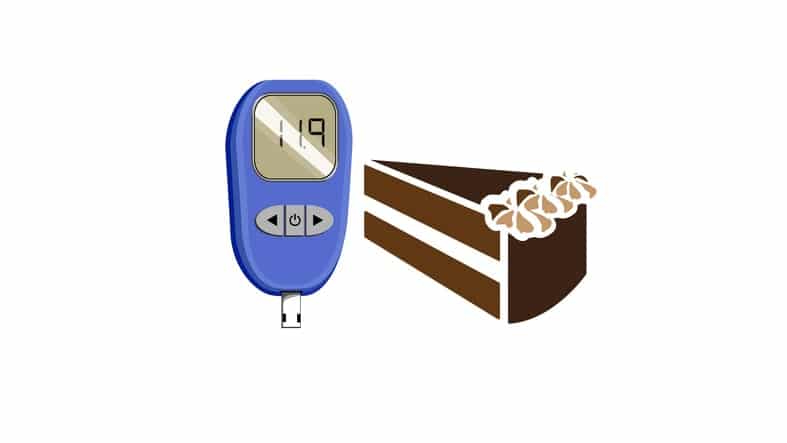
Eating added sugars contributes to weight gain and insulin resistance and can lead to hormone imbalances, so you should try to reduce your intake of food and drink with added sugars. Sweetened beverages are the primary source of added sugar in the American diet, as refined sugars like High-Fructose Corn Syrup (HCFS) are commonly used in soft drinks, fruit juice and energy drinks, so you should try to cut these beverages from your diet.
Reducing stress levels:
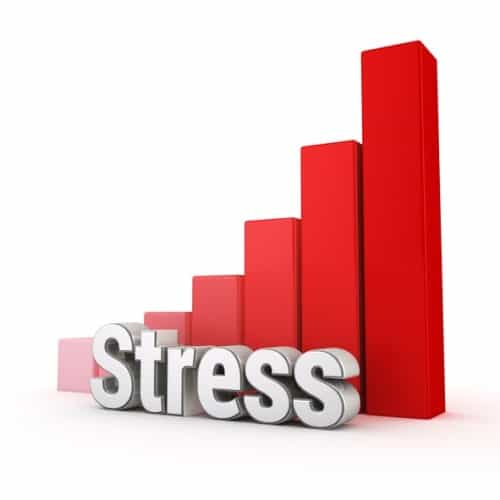
Stress can disrupt your hormonal imbalance, as it causes the production of cortisol and stimulates appetite, increasing your risk of insulin resistance and weight gain. Fortunately, you can lower your cortisol levels with stress reduction techniques like yoga and meditation, so a few lifestyle changes may be more beneficial than taking progesterone vitamins.
RELATED: Read our article on top rated stress relief supplements to learn more about the effects of stress on your body and how to reduce stress levels.
What Are the Signs of Low Estrogen?
As the primary female sex hormone, estrogen is vital for women’s physical and sexual development, though it is also present in males, albeit in much lower amounts. Prepubescent girls and perimenopausal women are most likely to suffer from low estrogen symptoms, but they can affect women of all ages.
Low levels of estrogen may present in a variety of ways, but common symptoms include:
- Painful sex due to poor vaginal lubrication
- Urinary Tract Infections (UTIs) are caused by thinning of the urethra
- Irregular or missed periods
- Mood shifts
- Hot flashes
- Breast tenderness
- Depression
- Headaches
- Fatigue
- Trouble Concentrating
Although some of these symptoms may be caused by other conditions, you may want to ask your doctor about estrogen vitamins or hormone therapy if you suffer from any of these issues. Low estrogen levels can cause serious health issues (such as osteoporosis) if left untreated, so you should try to treat this kind of hormonal balance as soon as reasonable.
What Are the Signs of Low Progesterone?
Progesterone is mainly produced in the ovaries and helps regulate your menstruation cycle, though its main function is to prepare your body for pregnancy. After ovulation, progesterone helps thicken the uterus lining in anticipation of a fertilized egg and (if there is a fertilized egg) maintains the uterine lining throughout pregnancy.
Although the effects of high progesterone can be extremely uncomfortable, insufficient levels can make it extremely hard to have children or get pregnant in the first place. Low progesterone levels tend to cause fertility issues but can also cause the following symptoms in women who aren’t pregnant:
- Headaches or migraines
- Mood changes such as depression and anxiety
- Irregular or missed periods
How Long Does It Take To Get Progesterone Levels Up?
Whether you’re concerned about your progesterone levels or trying to increase your chances of a healthy pregnancy, there are plenty of reasons to try and increase progesterone levels. One of the most effective ways to boost your levels is through hormone therapy, though your results may vary based on what products you use and biological factors like your lifestyle, body mass and hormonal balance.
Depending on what kind of progesterone vitamins or hormone therapy you are on, it may take several months to raise your progesterone levels to desirable levels. This is especially true when using over the counter (OTC) medications, such as creams and gels, which tend to contain lower doses than clinical progesterone medication, so be patient and use consistent doses for the best results.
The Effects of High Progesterone
Although progesterone is essential for healthy pregnancies – because it helps thicken the uterine lining to receive a fertilized egg – it can have unpleasant side effects. While your natural estrogen and progesterone levels tend to fluctuate throughout your menstrual cycle, high levels of progesterone can cause hormonal imbalances and symptoms which are easy to dismiss as premenstrual syndrome (PMS), such as:
- Breast swelling/tenderness
- Anxiety or agitation
- Bloating
- Fatigue
- Depression
- Low sex drive
- Weight gain
High progesterone levels are not usually dangerous but could be a sign of underlying conditions, including ovarian cysts or an abnormal pregnancy, so it may be worth seeing a doctor if you suffer from these effects of high progesterone.
Conclusion
Estrogen and progesterone are important sex hormones, especially in women, and any imbalances can cause unpleasant symptoms or even serious health conditions, so it’s important to keep them in check. Fortunately, there are plenty of treatments and vitamins to increase estrogen or manage your hormone levels, so you don’t have to suffer from hot flushes, fertility issues or mood swings forever.
However, trying to increase progesterone levels with OTC medications and supplements may not be the best way to address a hormonal imbalance. If you suffer from a hormonal imbalance like low estrogen, you should seek professional medical advice, as they may be linked to serious health conditions, such as PCOS.
